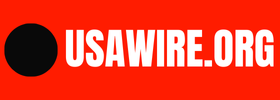[ad_1]

The fight for the political soul—and donations—of Silicon Valley is back on in full force after President Joe Biden announced he would be dropping out of the 2024 presidential race Sunday. It didn’t take long for the world’s richest man, Elon Musk, to restate his case for Republican nominee Donald Trump—and get into a social media squabble with prominent venture capitalist and Democratic donor Vinod Khosla.
Shortly after Biden officially backed out of the race, Khosla expressed his preference for an open convention to select the Democratic nominee in a post on X, the platform Musk owns.

“Come on Vinod,” the Tesla and SpaceX cofounder replied, reiterating his support for former president Trump and his newly selected running mate, J.D. Vance.
Come on, Vinod. Trump/Vance LFG!!
— Elon Musk (@elonmusk) July 21, 2024
Khosla, an investor in OpenAI worth about $8 billion, was ready to engage.
“Hard for me to support someone with no values, lies, cheats, rapes, demeans women, hates immigrants like me,” wrote Khosla, who grew up in India before earning graduate degrees from Carnegie Mellon and Stanford. “He may cut taxes or reduce some regulation but that is no reason to accept depravity in his personal values.”
In the exchanges that followed, Khosla and Musk agreed about distrusting media organizations and the need to promote individual freedoms. They clashed, however, about what a Trump presidency would mean for the fight against climate change and America’s leadership in NATO.
Khosla finished by asking Musk if he was willing to forgive Trump for the former president’s role in the Capitol insurrection on Jan. 6, 2021. Musk did not respond.
And @elonmusk are you willing forgive him for trying to subvert democracy on Jan 6 and push for insurrection just to win? He was doing everything, illegal or not, to try and win while his own deeply partisan cabinet tried to control him and get him to stop https://t.co/mPH4X5Ug7E
— Vinod Khosla (@vkhosla) July 21, 2024
The social media sparring highlighted a flashpoint in traditionally liberal Silicon Valley. Some of the biggest (and richest) names in tech, including Musk, Peter Thiel, and venture capitalists Marc Andreessen and Ben Horowitz, have publicly backed Trump.
By selecting Vance—the freshman Ohio senator and author of bestselling memoir Hillbilly Elegy—as his vice-presidential nominee, Trump strengthened his ticket’s ties to the VC world, where Vance made his career after graduating from Yale Law School. Thiel, Vance’s biggest VC backer, helped introduce Vance to Trump at Mar-A-Lago in 2021, with Vance earning Trump’s blessing for his Senate run despite his past criticism of the former president.
But Vance, the first millennial on a major party ticket, is far from an ally of Big Tech and those who see increased regulation as an existential threat to investment and innovation. Vance has praised Federal Trade Commission chair Lina Khan for leading the agency’s antitrust enforcement charge. He’s also reached across the aisle to progressive colleagues like Elizabeth Warren to introduce bills like the “Stop Subsidizing Giant Mergers Act.”
To run against Trump and Vance, Khosla initially tagged Michigan governor Gretchen Whitmer and Pennsylvania governor Josh Shapiro as lawmakers he wanted to see compete for the Democratic nomination, later adding Kentucky governor Andy Beshear and Harris, who Biden endorsed shortly after dropping out, to the list. All three governors quickly got behind Harris, however, who looks set to be the nominee after her campaign said it raised nearly $50 million Sunday.
LinkedIn cofounder Reid Hoffman was among the first Silicon Valley executives to publicly support Harris, who hails from the Bay Area and has been a past ally to California’s big tech companies.
[ad_2]
Source link

